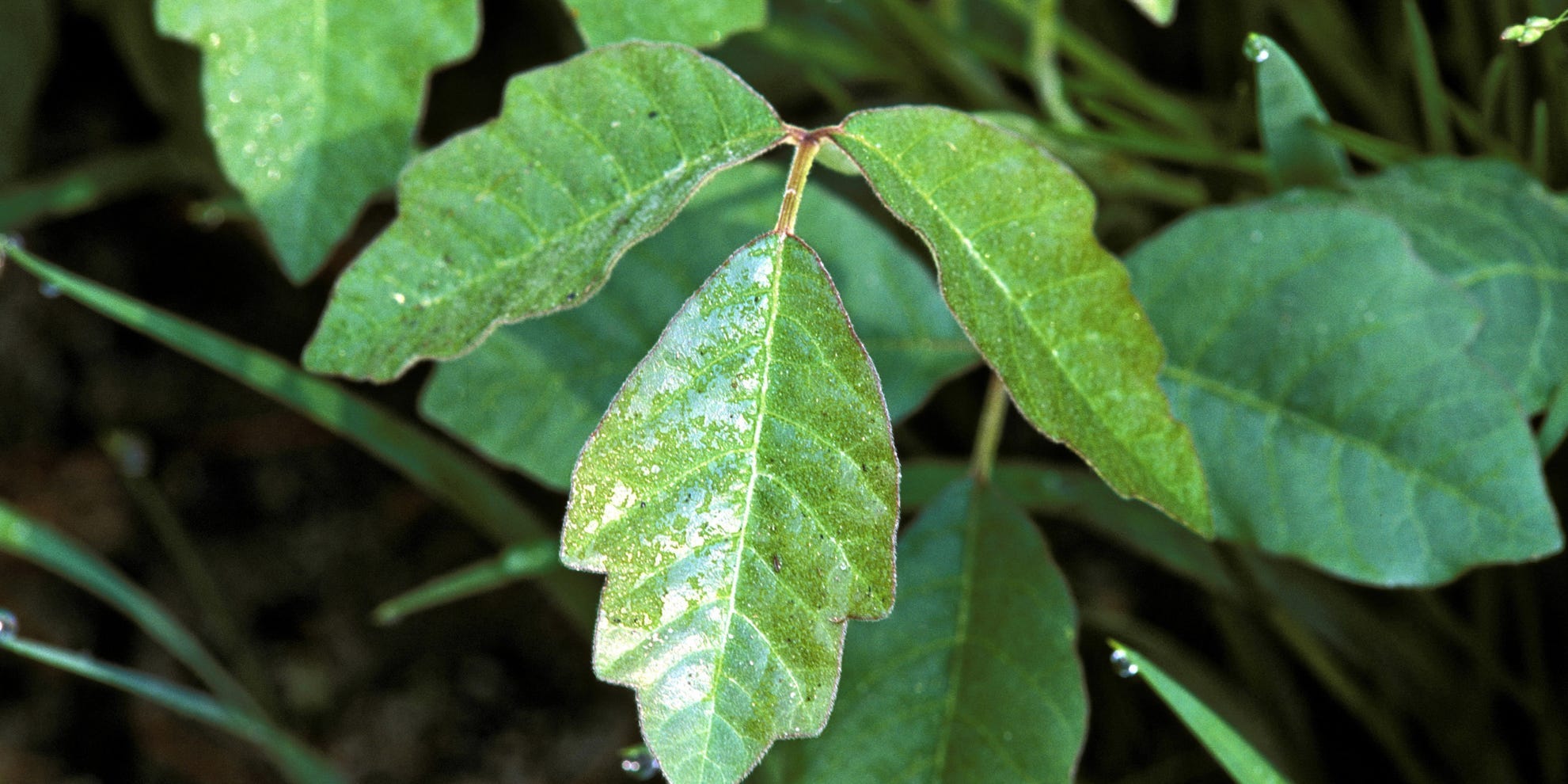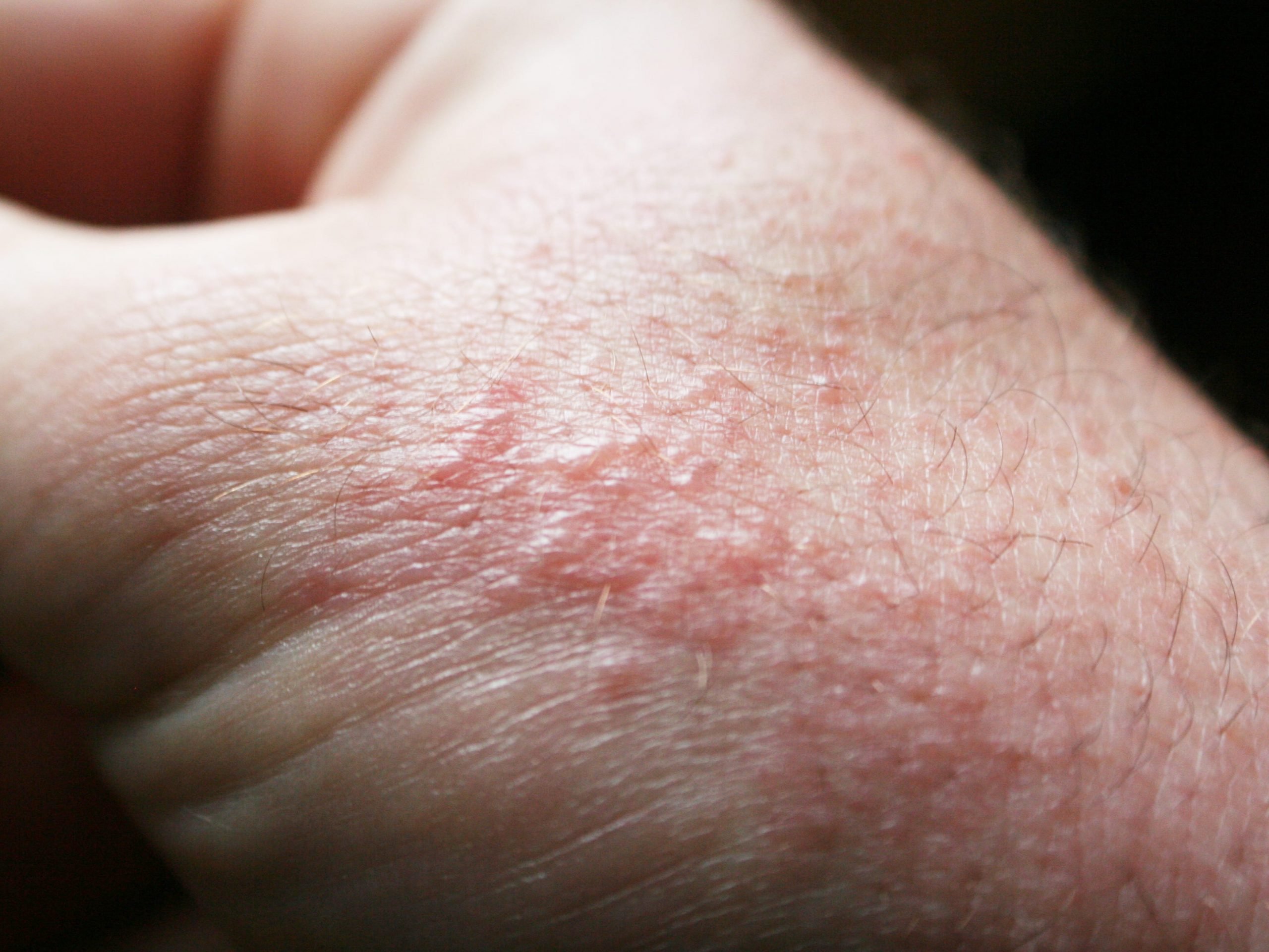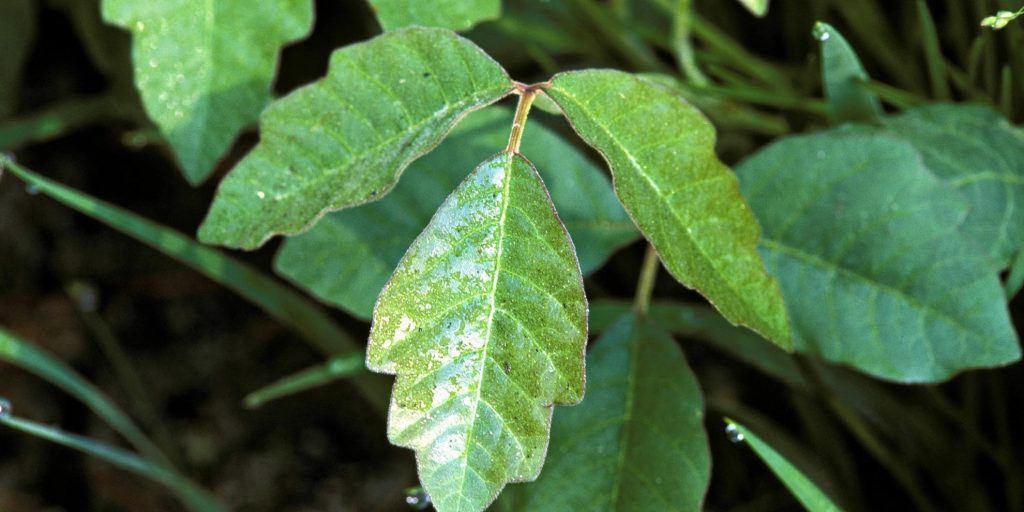
Ed Reschke/Getty Images
- Poison oak has leaves that grow in groups of three, have wavy edges, and fuzzy undersides.
- A poison oak rash is usually pink or red and will usually appear within 24 hours.
- You can treat poison oak with oral antihistamines, topical lotions, and hydrocortisone cream.
- Visit Insider's homepage for more stories.
Poison oak is a shrub that grows on the west coast and southeast region of North America. These poisonous plants have leaves that usually:
- Grow in groups of three
- Have rounded or wavy edges
- Are green
- Have fuzzy undersides that are usually a lighter color than the top
Sometimes, there might be a visible black substance, called urushiol, on the leaves or stems. This is the same compound found in other poisonous plants like poison ivy and is responsible for causing a rash in most people.
What does the poison oak rash look like

Darren415/Getty Images
A rash from poison oak will appear pink, red, or less commonly, black. In more severe cases, you might also see blisters, says Christine Ko, MD, PhD, Yale Medicine dermatologist, dermatopathologist, and professor at Yale School of Medicine.
Not everyone will develop a rash from poison oak. It's estimated that about 85% of people are allergic to urushiol and will get a rash on contact, and the rest will not.
Ko says a rash will usually appear within 24 hours of exposure, and it can last for up to three weeks depending on the person.
Treatment for poison oak
Ko says mild cases of poison oak rashes can be left alone to heal on their own. However, you can alleviate any discomfort with some simple and easy home remedies such as:
- Topical lotions, like ones that include calamine or menthol
- Over the counter hydrocortisone cream
- Oral antihistamines
- Cool, wet compresses
Additionally, you should avoid itching the rash or picking at any blisters as this will just damage the wound farther and prolong the healing process.
If the rashes cover a large area of your body or if you are experiencing extreme discomfort, your doctor may prescribe you oral corticosteroids. A typical dose of corticosteroids lasts about three weeks.
Insider's takeaway
Walks in the wilderness can be a fun way to experience nature, but spending time in the great outdoors comes with the risk of encountering poisonous plants.
You can use gloves when gardening or a solution that you apply to your skin that provides a barrier so the urushiol can't penetrate it.
It's important to be aware of what poison oak looks like so you can steer clear of it and avoid the rash in the first place.
If you do end up getting a poison oak rash, try our home remedies to ease the discomfort, and see a doctor if the discomfort is extreme or the rash isn't improving after a couple of weeks.
